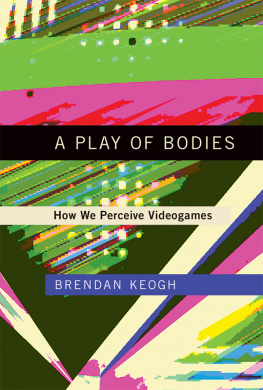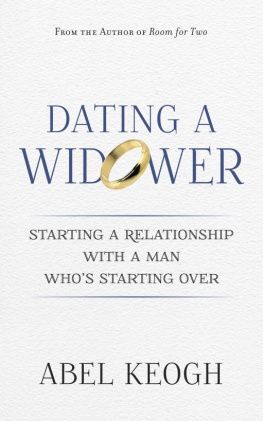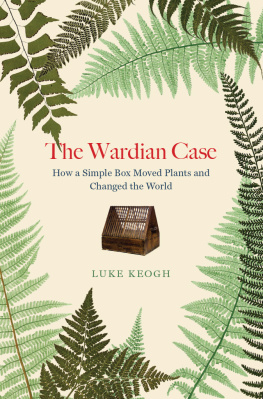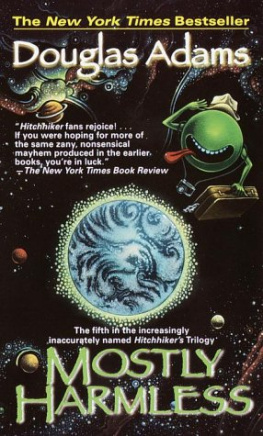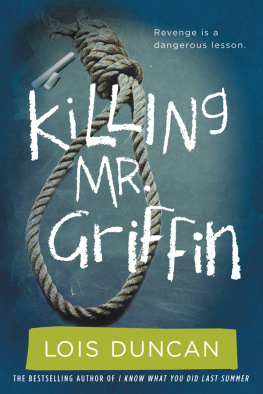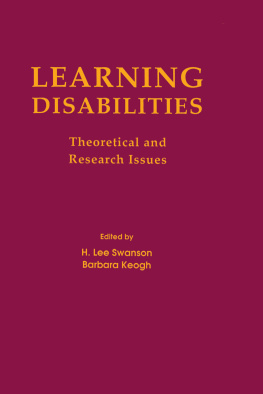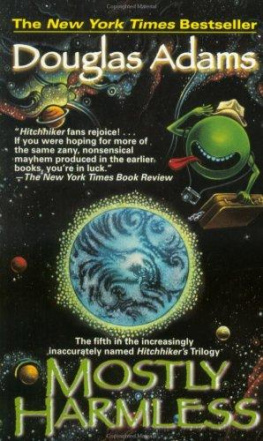Brendan Keogh - Killing Is Harmless: A Critical Reading of Spec Ops: The Line
Here you can read online Brendan Keogh - Killing Is Harmless: A Critical Reading of Spec Ops: The Line full text of the book (entire story) in english for free. Download pdf and epub, get meaning, cover and reviews about this ebook. year: 2012, publisher: Stolen Projects, genre: Art. Description of the work, (preface) as well as reviews are available. Best literature library LitArk.com created for fans of good reading and offers a wide selection of genres:
Romance novel
Science fiction
Adventure
Detective
Science
History
Home and family
Prose
Art
Politics
Computer
Non-fiction
Religion
Business
Children
Humor
Choose a favorite category and find really read worthwhile books. Enjoy immersion in the world of imagination, feel the emotions of the characters or learn something new for yourself, make an fascinating discovery.

- Book:Killing Is Harmless: A Critical Reading of Spec Ops: The Line
- Author:
- Publisher:Stolen Projects
- Genre:
- Year:2012
- Rating:5 / 5
- Favourites:Add to favourites
- Your mark:
- 100
- 1
- 2
- 3
- 4
- 5
Killing Is Harmless: A Critical Reading of Spec Ops: The Line: summary, description and annotation
We offer to read an annotation, description, summary or preface (depends on what the author of the book "Killing Is Harmless: A Critical Reading of Spec Ops: The Line" wrote himself). If you haven't found the necessary information about the book — write in the comments, we will try to find it.
Killing Is Harmless: A Critical Reading of Spec Ops: The Line — read online for free the complete book (whole text) full work
Below is the text of the book, divided by pages. System saving the place of the last page read, allows you to conveniently read the book "Killing Is Harmless: A Critical Reading of Spec Ops: The Line" online for free, without having to search again every time where you left off. Put a bookmark, and you can go to the page where you finished reading at any time.
Font size:
Interval:
Bookmark:
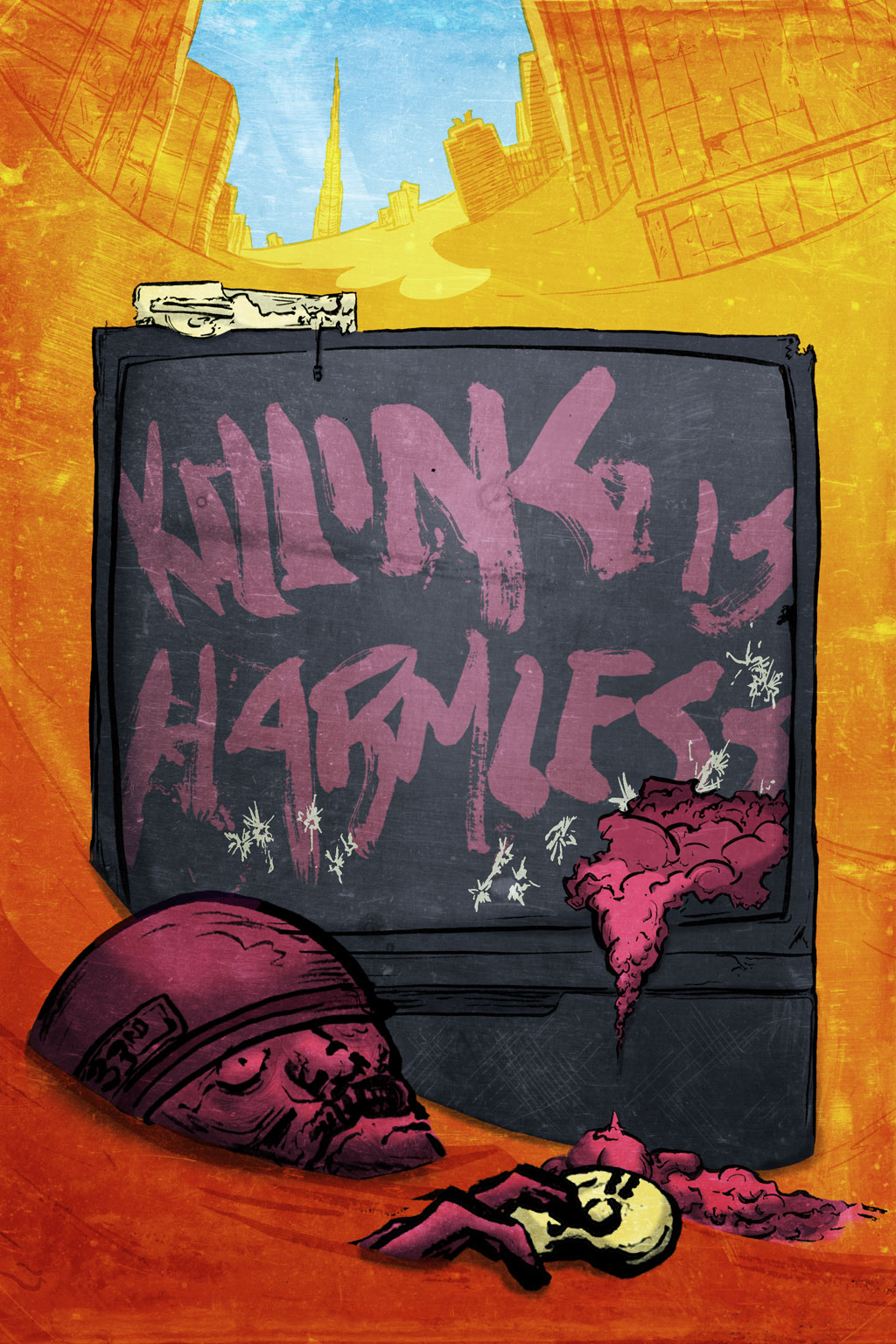
At night you can see the lights sometimes from a passing tanker or trawler. From up on the cliffs they are mundane, but down here they fugue into ambiguity. For instance, I cannot readily tell if they belong above or below the waves. The distinction now seems mundane; why not everything all at once! Theres nothing better to do here than indulge in contradictions, whilst waiting for the fabric of life to unravel.
Dear Esther, The Chinese Room
ACKNOWLEDGEMENTS
Writing what turned out to be a short book about a single videogame was a much more stressful and intense task than I anticipatedand I anticipated it would be pretty stressful and intense! There are a few people who, without their support, this project never would have seen the light of day.
Firstly, I would be amiss to not thank Yager and 2K for creating a game so challenging, thought-provoking, and insightful as to inspire me to try writing about it in an entirely new way.
My thanks to Rob Zacny and Ben Abraham for contributing screenshots for this book, and for going out of their way to capture particular images that I needed. I must also thank Rob for allowing me to re-print his insights in Chapter Four, and for an incredible midnight chat about The Line and every other videogame ever made in a Montreal hotel lobby back in September. That conversation really helped me find many of the words I needed to find to write these chapters.
For the critical compilation at the end of this tome, I owe my thanks to all those that sent me recommendations, in particular the gaming blogospheres resident librarian, Eric Swain. Eric provided many of the links from his legendary RSS feed, and it would be a far sparser compilation without his help.
I owe an eternal debt to those brave souls that read early, rough, hideous drafts of this project when I still had no idea what I was doing with it. Mark Johnson supplied vital grammatical and consistency edits, and also interrogated some of my more poorly made arguments. Helen Berents gave me the invaluable insight of a reader who has not played the game, and pointed out many a terribly constructed sentence. Helen also provided one or two of the footnotes later on. Dan Golding, meanwhile, gave priceless structural advice, assured me I wasnt wasting my time, and convinced me to take the distribution and design of this project seriously. Without Dan, this would be a far less impressive piece of work.
Which brings me to Dan Purvis, partner and skilled designer. Its been a privilege and a delight to have Dan on board to make these words into something Im truly proud to have created. I had no idea what to do with this once I had a completed Word document, and I couldnt think of any other hands I would rather trust this to.
And I owe my lovely partner, Helen Berents, a second thank you for putting up with me while I added this project to all my other projects, and for not telling me too often how mad I was to do so.
And finally, in the most clich and typical way, thank you for taking a gamble and purchasing this. Its a new, weird, and experimental kind of writing about games. I didnt know what to expect when I wrote it, and you didnt know what to expect when you bought it. So thank you for taking a chance. I hope it was worth it.
Brendan Keogh
FOREWORD
The second wave of Western filmmakers (Sergio Leone, Sam Peckinpah, Clint Eastwood) turned our deep familiarity with the genre in on itself, addressing existential questions and examining the nature of violence. These films were radical departures from the Hollywood formula, not because they rejected the familiar settings or the guns or the hero/villain dichotomy, but because they made these the very subjects of their scrutiny.
Michael Abbott, The Brainy Gamer .
We shouldnt be afraid to question our own medium. It is ours to do with as we see fit. There is no problem in questioning what is your own and asking what it is that you want to do with it, and are we necessarily doing the right thing with it? I mean, thats the other great thing about mediums, is that there is no right thing.
Walt Williams, lead writer for Spec Ops: The Line.
In his article High Noon For Shooters, videogame critic Michael Abbott notes that as the Western film genre matured, it turned its gaze inwards onto the Western genre itself to ask questions about the ways it depicted violence. This second wave of Western filmmakers were not necessarily trying to determine if what Western films did was good or bad, but they simply wanted to create films that poked at the genre, interrogated it, unsettled it.
Abbotts point is that the bulging bubble that is videogames shooter genre is heading towards a similar introspective turn. Only so many games can be absolutely uncritical and unthinking in their violence before players start to think more critically about what these games are asking of them and developers start to question just what they are creating. After so many years of shooters that dont think twice about the excessive violences they ask their players to participate in, the shooter genre is set for a second wave of games that, much like the Western film genre, turn the gaze back onto themselves. These shooters wont necessarily be trying to determine if shooters are good or bad, but will simply want to create shooters that poke at the genre, interrogate it, unsettle it.
Of course, critics have been critiquing shooters for years. Even those of us that sincerely enjoy shooters cant shake the feeling that there is something fundamentally unsettling about them. Even though most of the articles I write about shooters are praising positive things about them, I always feel obliged to add caveats. The Modern Warfare trilogy is an absolutely magnificent example of how to tell a scripted story in a videogameeven if that story makes absolutely no sense and the trilogy completely alienates and vilifies the stereotypical Russian and Arabic enemies in really problematic ways. The Gears of War games are a terrific example of how to convey a games tone through its core mechanics, with its seminal cover system evoking the intensity and claustrophobia of an utterly futile wareven as the games laughably ask us to weep for a characters dead wife moments after he trash-talked an enemy while stomping on his brains. Far Cry 2s open vistas and persistently uncontrollable skirmishes give an intensity to its violence matched by few gameseven as it chooses to depict a nation without civilians, a conflict without collateral.
Theres no shortage of shooters that want to be about something. But very few shooters are brave enough to look in the mirroror to force the player that enjoys shooters to look in the mirrorand question what they see. Not to pass judgment. Not to ask them to change their ways. Just to understand what is going on here. To appropriate Abbotts post, it is high noon for shooters to take a long, hard look at themselves.
Clearly, Abbott is onto something with his prediction. Not two months after he wrote his article, Yager and 2K released Spec Ops: The Line and made me question everything Ive ever thought about shooters.
Spec Ops: The Line
The Line is a shooter about shooters. It makes some interesting commentaries on modern warfare and Western interventionism to be sure, but what I got out of it most were questions about the shooter genre itselfthe questions that other shooters either willfully ignore or simply dont think to ask. Is it really okay to be shooting this many people? Does it actually matter that they arent real? What does it say about us, the people who play shooter after shooter, the people who have a virtual murder count in the thousands of thousands, that these are the games we enjoy playing? What does it say about us, as a culture, that these are the kinds of games that make so much money?
Font size:
Interval:
Bookmark:
Similar books «Killing Is Harmless: A Critical Reading of Spec Ops: The Line»
Look at similar books to Killing Is Harmless: A Critical Reading of Spec Ops: The Line. We have selected literature similar in name and meaning in the hope of providing readers with more options to find new, interesting, not yet read works.
Discussion, reviews of the book Killing Is Harmless: A Critical Reading of Spec Ops: The Line and just readers' own opinions. Leave your comments, write what you think about the work, its meaning or the main characters. Specify what exactly you liked and what you didn't like, and why you think so.

